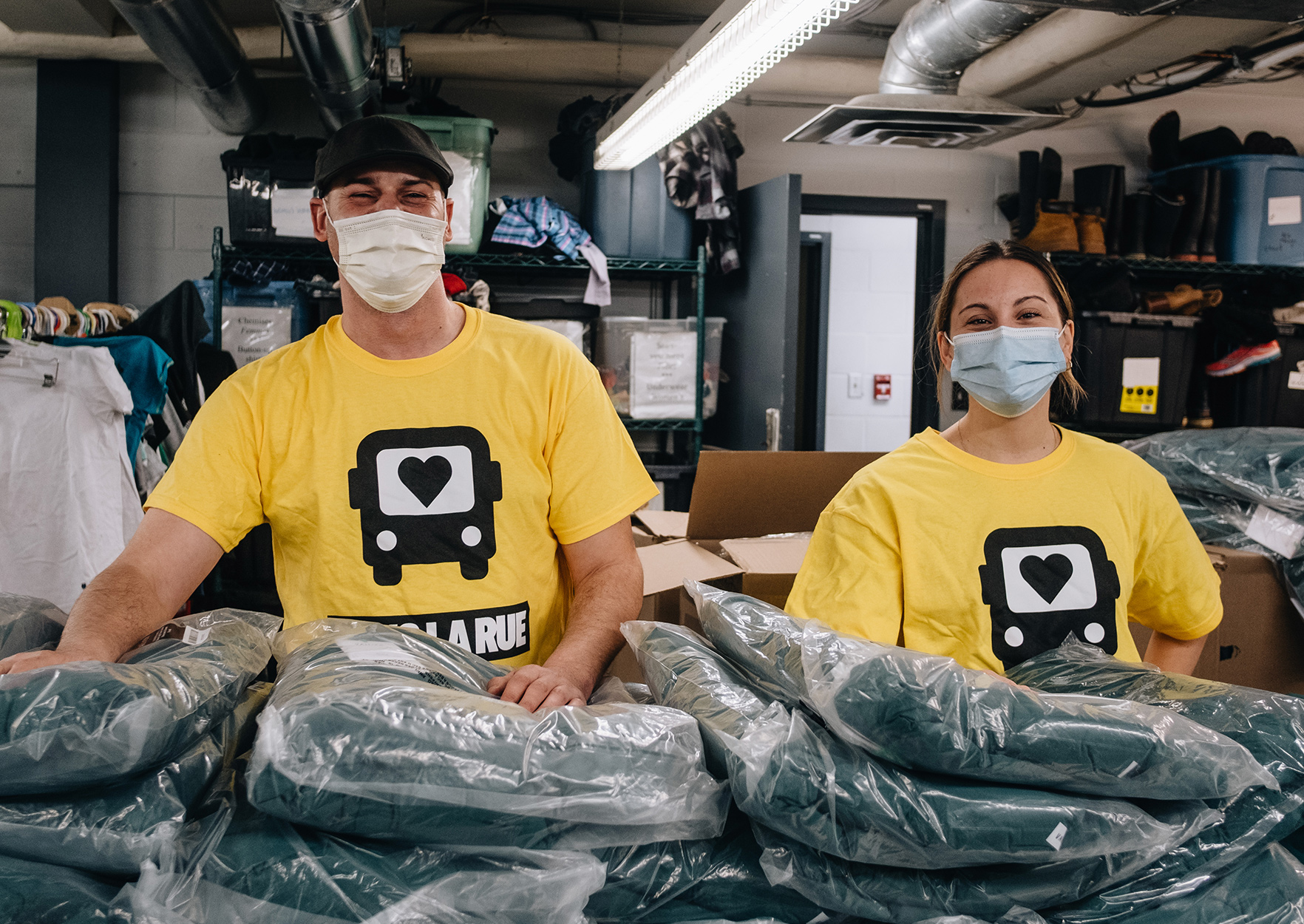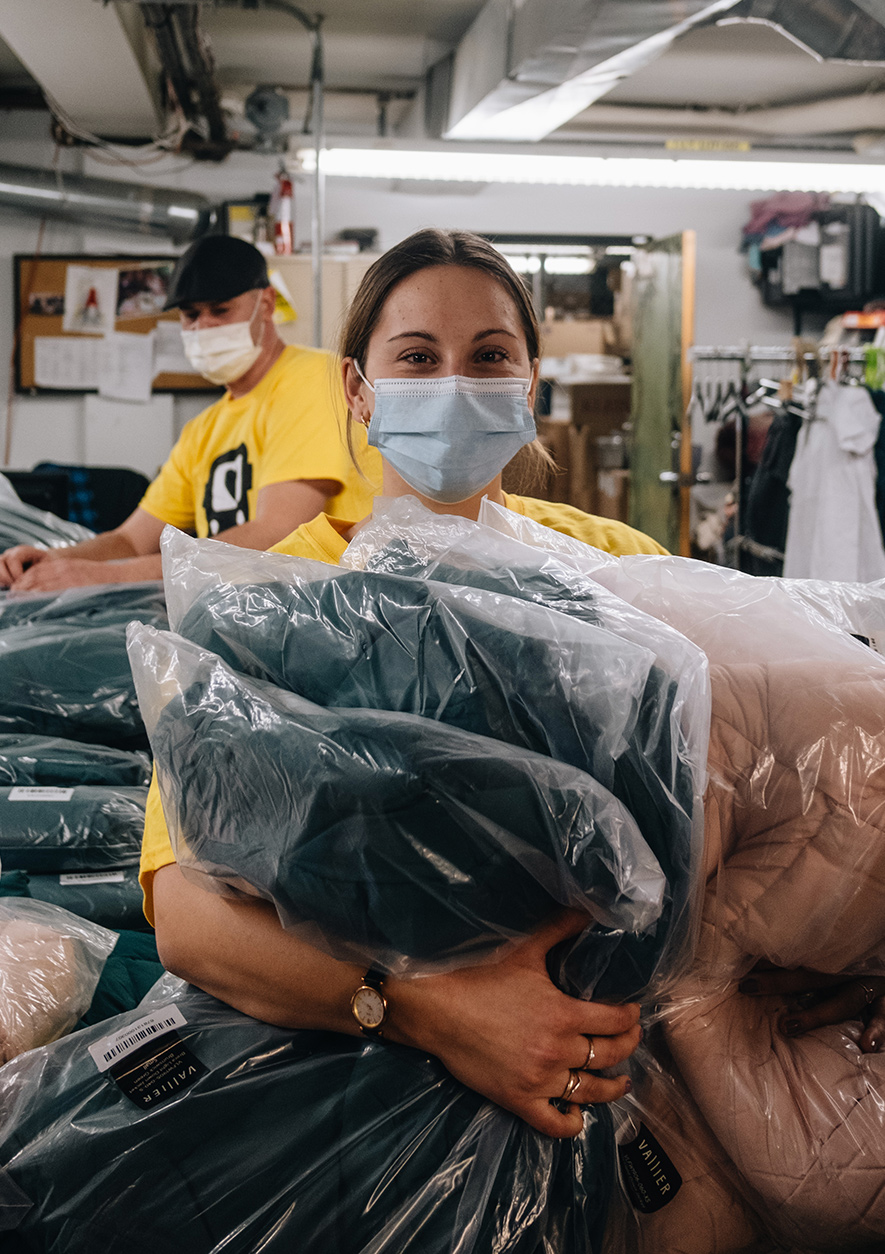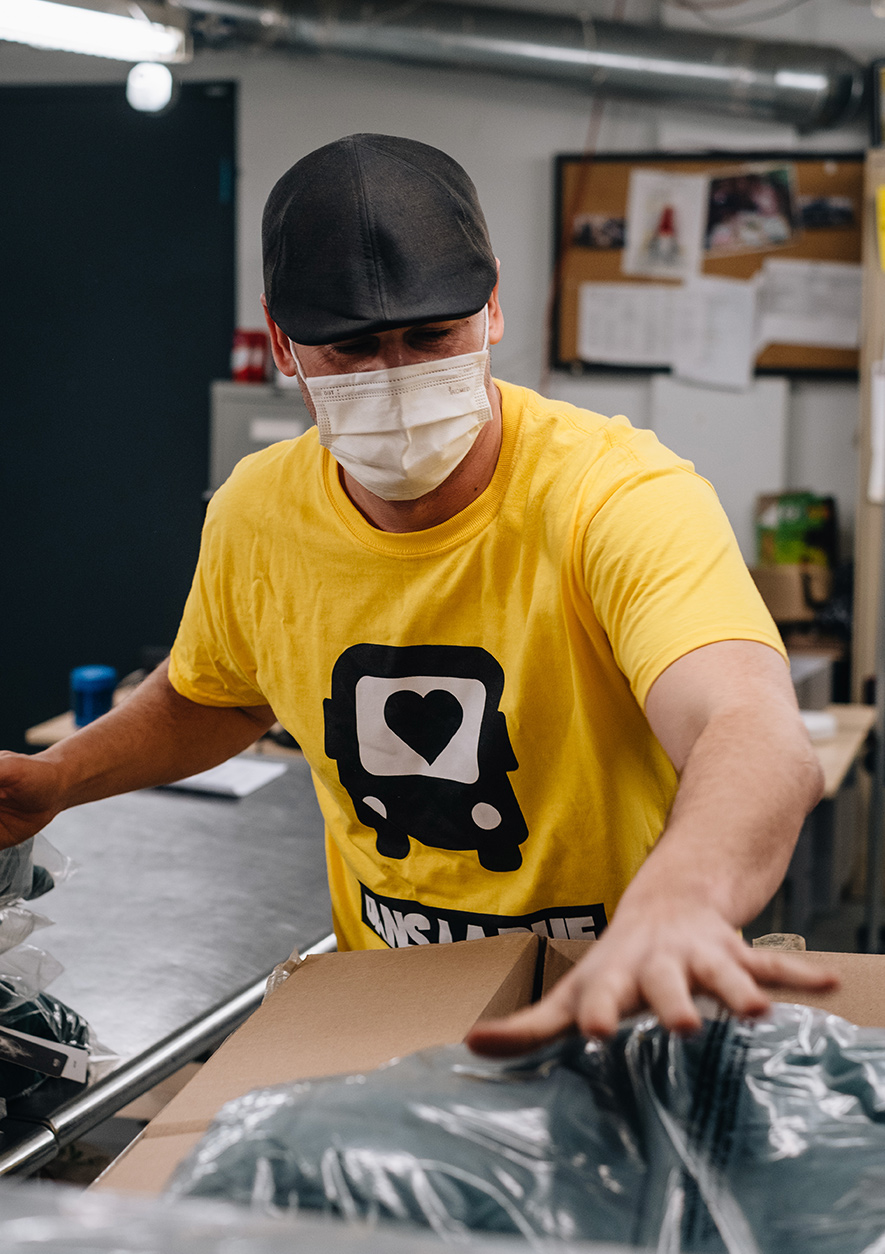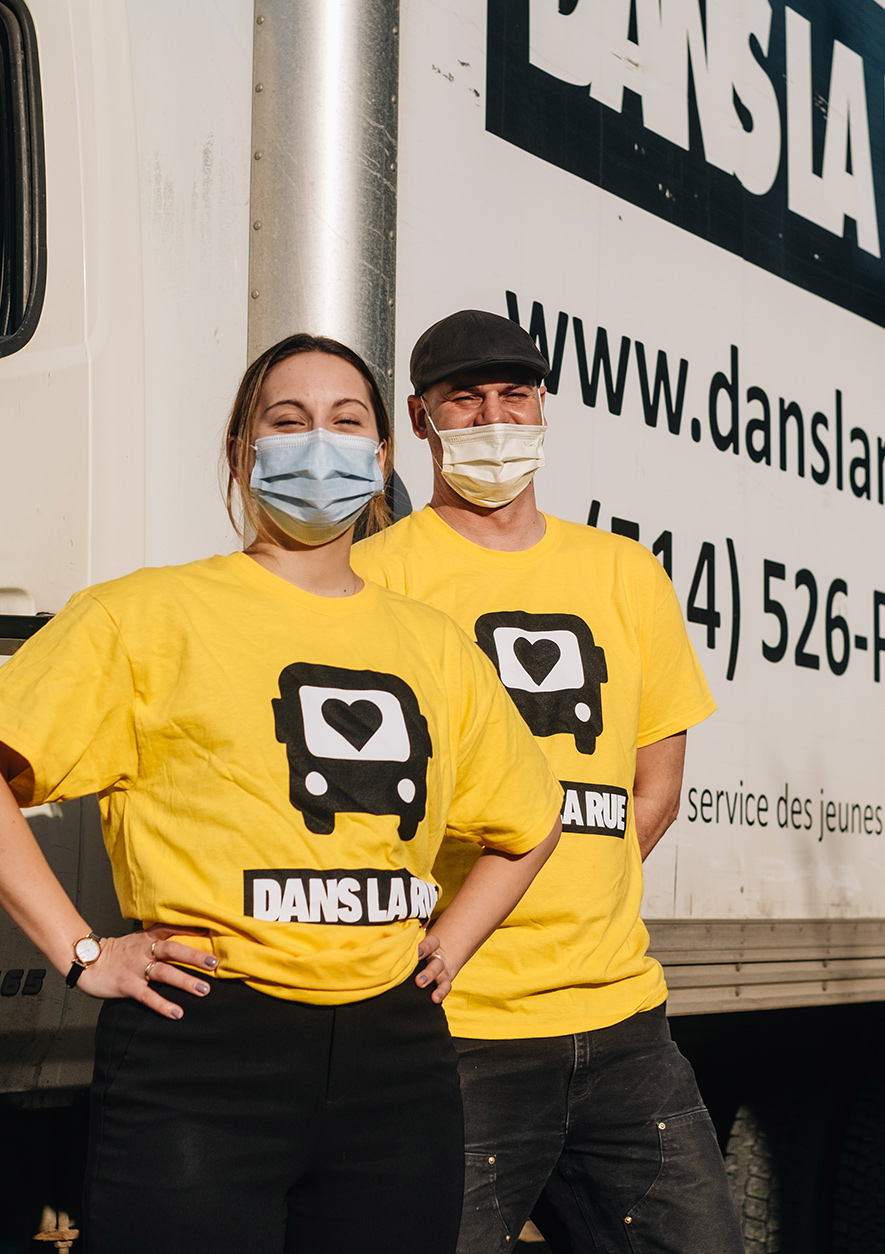In March, Vallier donated coats to homeless youth through the Dans la rue organisation. We took the opportunity to meet the people who work there and learn more about the mission of the Dans la rue, and found out about the impact of the pandemic on its activities.
Up close: Dans la rue

What is Dans La Rue’s mission?
Dans La Rue helps young people who are homeless or in precarious situations. With dedication, empathy and respect, and with the support of the community, Dans la rue addresses their immediate needs and works with them to develop the skills and resources they need to lead more independent and rewarding lives.
Each member of our team contributes their expertise and listening skills to accompany these young people in the various spheres of their lives. Whether it’s the counsellors, psychologists or support staff, each one of our members pursues the organisation's mission on a daily basis, guided by the values of commitment, benevolence, respect and collaboration.
What impact has the pandemic had on young people at risk, and on the organisation's mission?
Since the beginning of the pandemic, our workers have noticed that the most vulnerable young people naturally turn to Dans la rue services, a place they see as safe and where they can always find someone to help them. When they come to us, young people are often hungry and cold. Basic care is difficult to provide outside of Dans la rue. We’ve also found that the mental health of young people is greatly affected by the pandemic, and they often need urgent support in this area.
How do you adapt and continue to help?
We had to teach, explain and popularise new health measures to the young people who came to us, and do it quickly, so that we could remain open and safe. We’re in constant contact with the CIUSSS du Centre-Sud-de-l'Île-de-Montréal and the organizations that provide services to the homeless. This allows us to have an overview of the services offered, and the constraints for the homeless population in Montreal.
Also, in these difficult times, the kids we see are in even greater need of psychosocial support. Beyond meals and nights, the presence and psychological support offered by our workers are essential for young homeless people facing psychological distress, anxiety and a feeling of increased social isolation - now more than ever. We make sure we listen to them and refer them as soon as possible to whatever necessary resources they might need.
What are the challenges of youth homelessness compared to adult homelessness?
The causes and realities of youth homelessness are different from those of adult homelessness, and they require adapted solutions. Some young people experience housing instability (sleeping outdoors, moving back and forth between home and other places, sharing a roof) and a precarious situation in terms of mental health and substance abuse. They lack education and have little access to the labour market. They have little experience of independent living. Homelessness is very rarely a choice. Young people have a desire to get out of it.
It’s often caused by family dysfunction (violence, abuse, substance abuse, mental health), poverty, underemployment, lack of affordable housing, and breakdowns in the care system (physical and mental) and child welfare.
What should we as a society pay more attention to?
Learn about the various ways to help those in need. Learn about the causes and consequences of youth homelessness as well.
Confronting our prejudices - because all homeless people are in unique and different situations. The stereotypes we have often prevent us from having an enlightened awareness of reality, or rather, of the diversity of realities. It’s important to remember that homelessness is rarely a choice, and can be the result of many events or conditions. No one is immune to bad luck, a health problem, eviction, and so on.
Listen to people in need - they know their situation, strengths, weaknesses and desires best. The first step is to be open and welcoming. Without this, care and services cannot be provided for the good of those in need. We must be able to understand the full complexity of a situation in order to provide services with both a medium and long-term vision.
Finally, don’t hesitate to call out any unfair or unacceptable situation for a person or a group of people. We’re all part of society, and it’s our duty to speak out when society leaves out or penalises the most vulnerable. Engagement can be on a small scale (donating time or money to a local organisation) or on a large scale (writing a letter to your MP to demand action on a bill).




